Analyzing the Influence of Social Media on Nursing Practice Ethics
VerifiedAdded on 2022/11/13
|5
|863
|211
Essay
AI Summary
This essay examines the influence of social media on nursing practice, highlighting both its potential benefits and risks. It discusses the ethical responsibilities of nurses when using social media, emphasizing the importance of maintaining patient privacy and adhering to professional standards. The essay also addresses the potential consequences of inappropriate social media use, such as job termination and legal repercussions, referencing the Health Insurance Portability and Accountability Act (HIPAA). Furthermore, it explores how social media can be used to improve nursing care in remote areas by connecting nurses with the latest innovations and best practices. The essay concludes by advocating for the responsible use of social media in nursing to enhance patient care while avoiding professional and ethical pitfalls. Desklib provides access to similar essays and study resources for nursing students.
1 out of 5
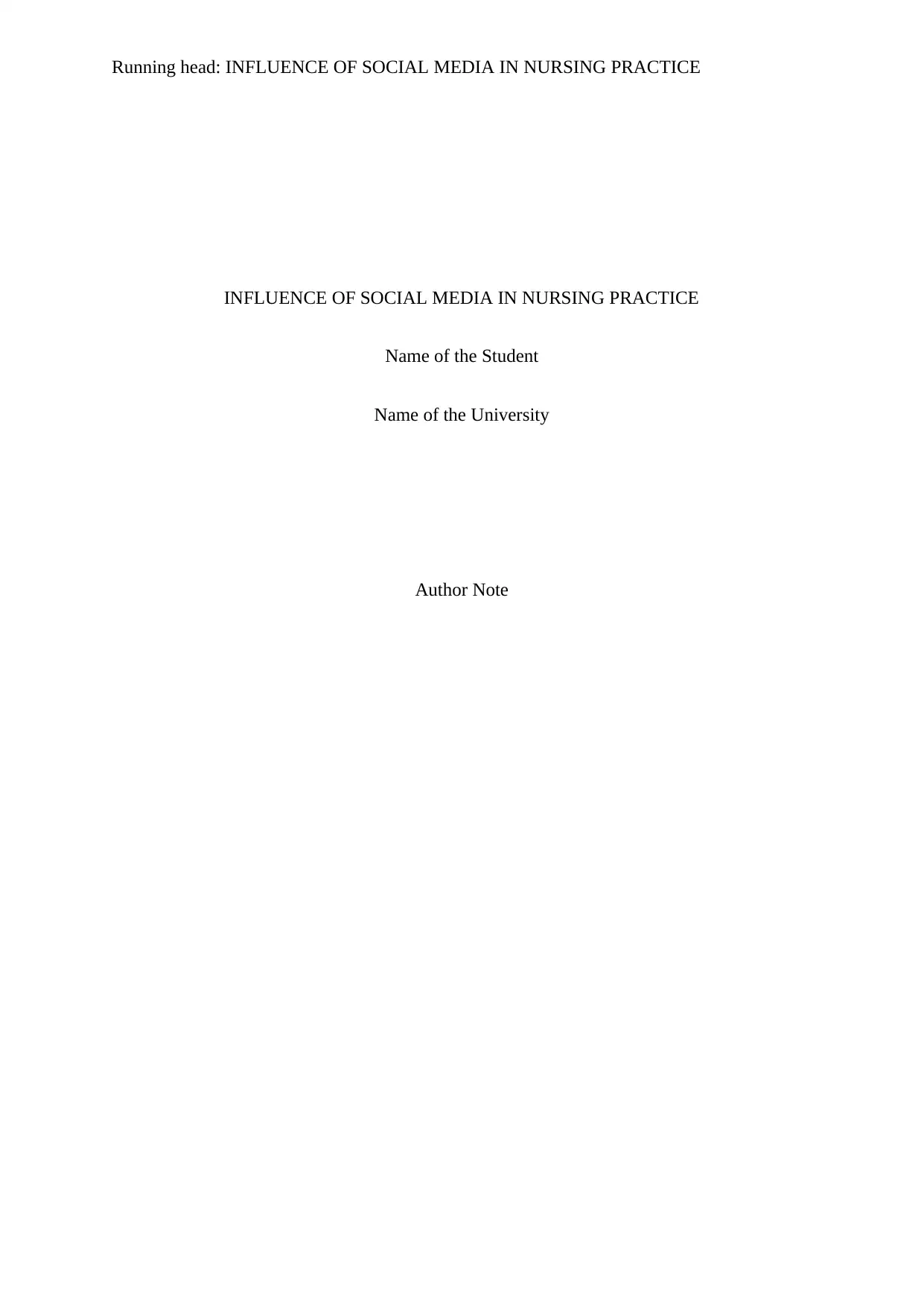
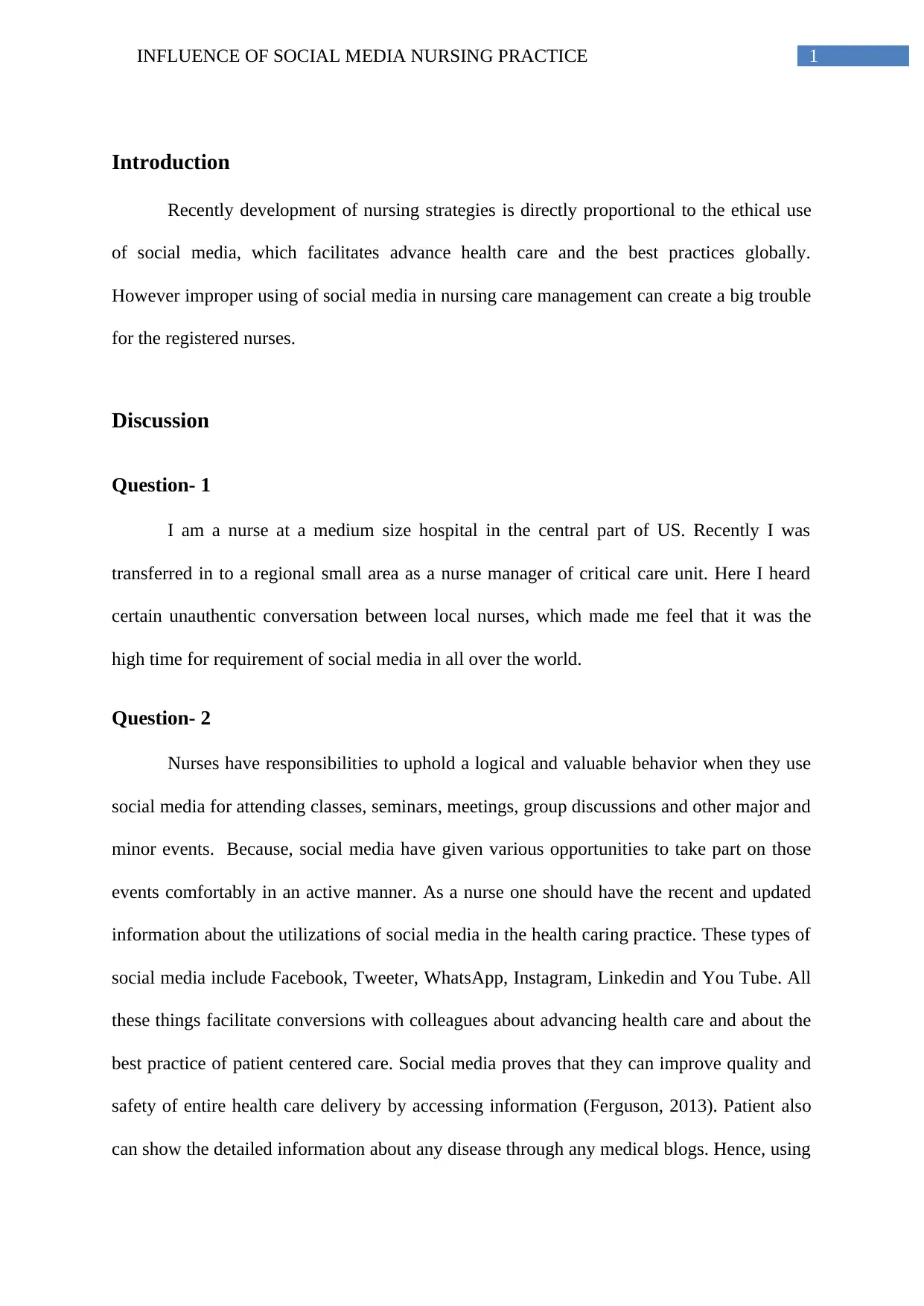
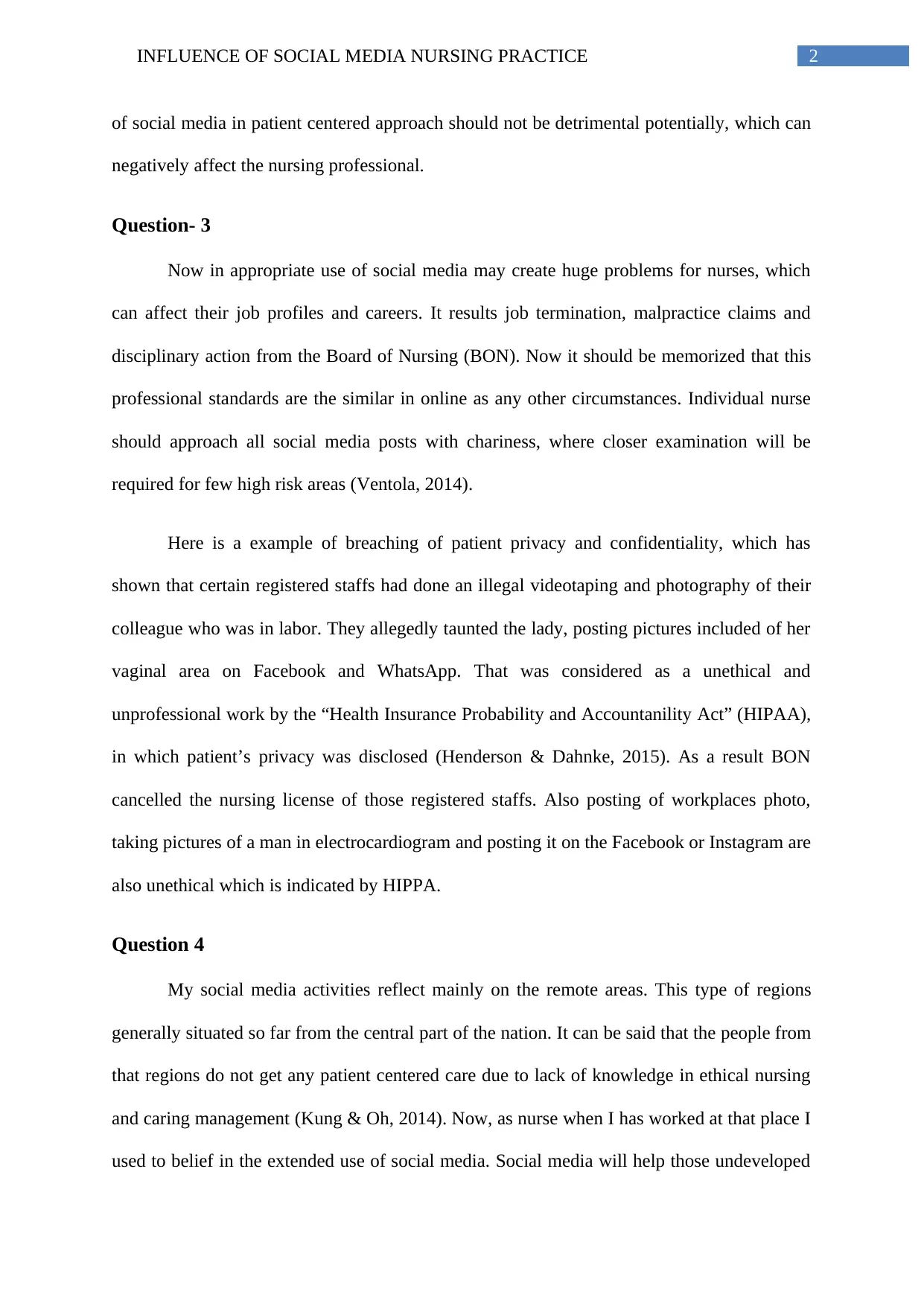

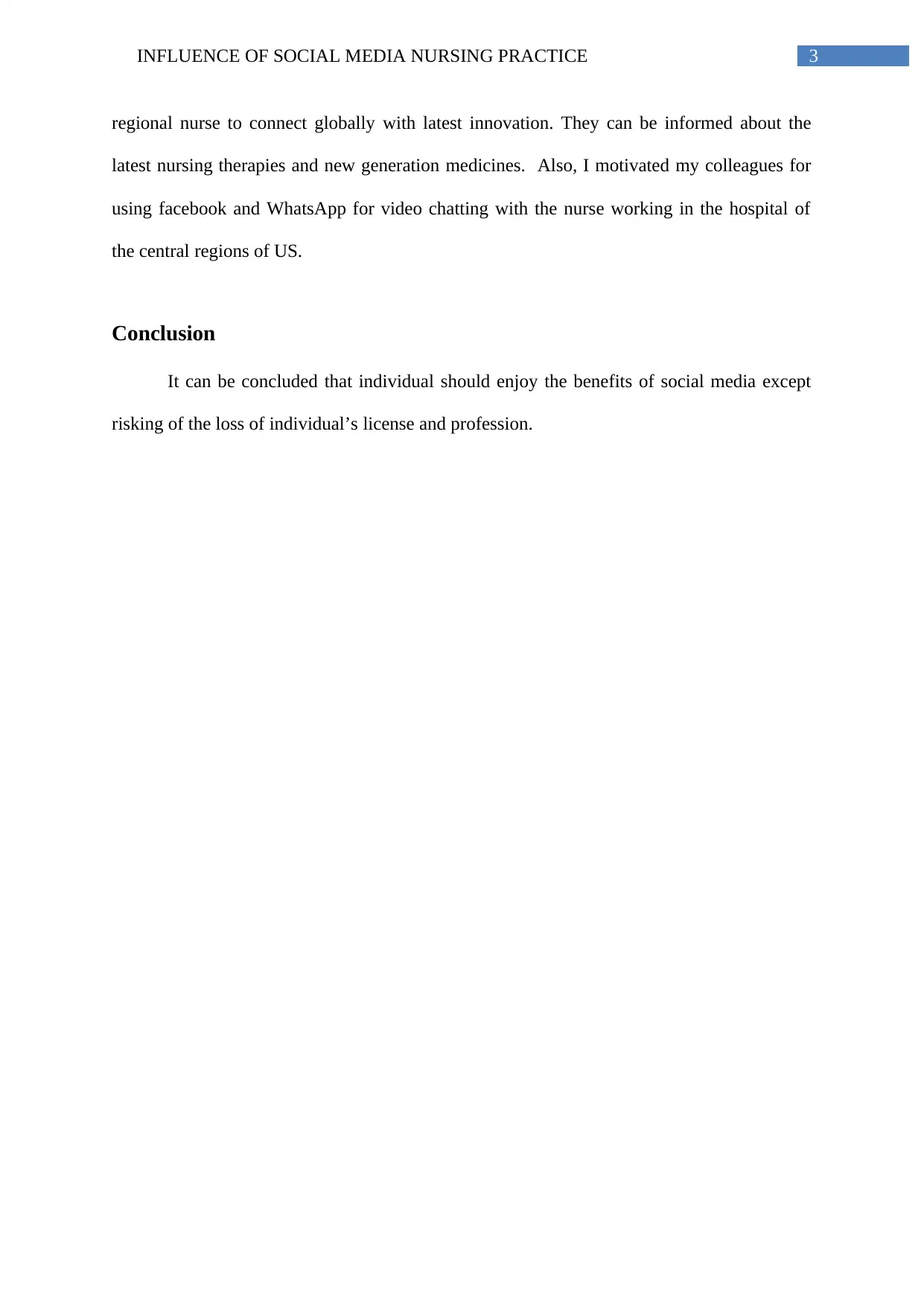
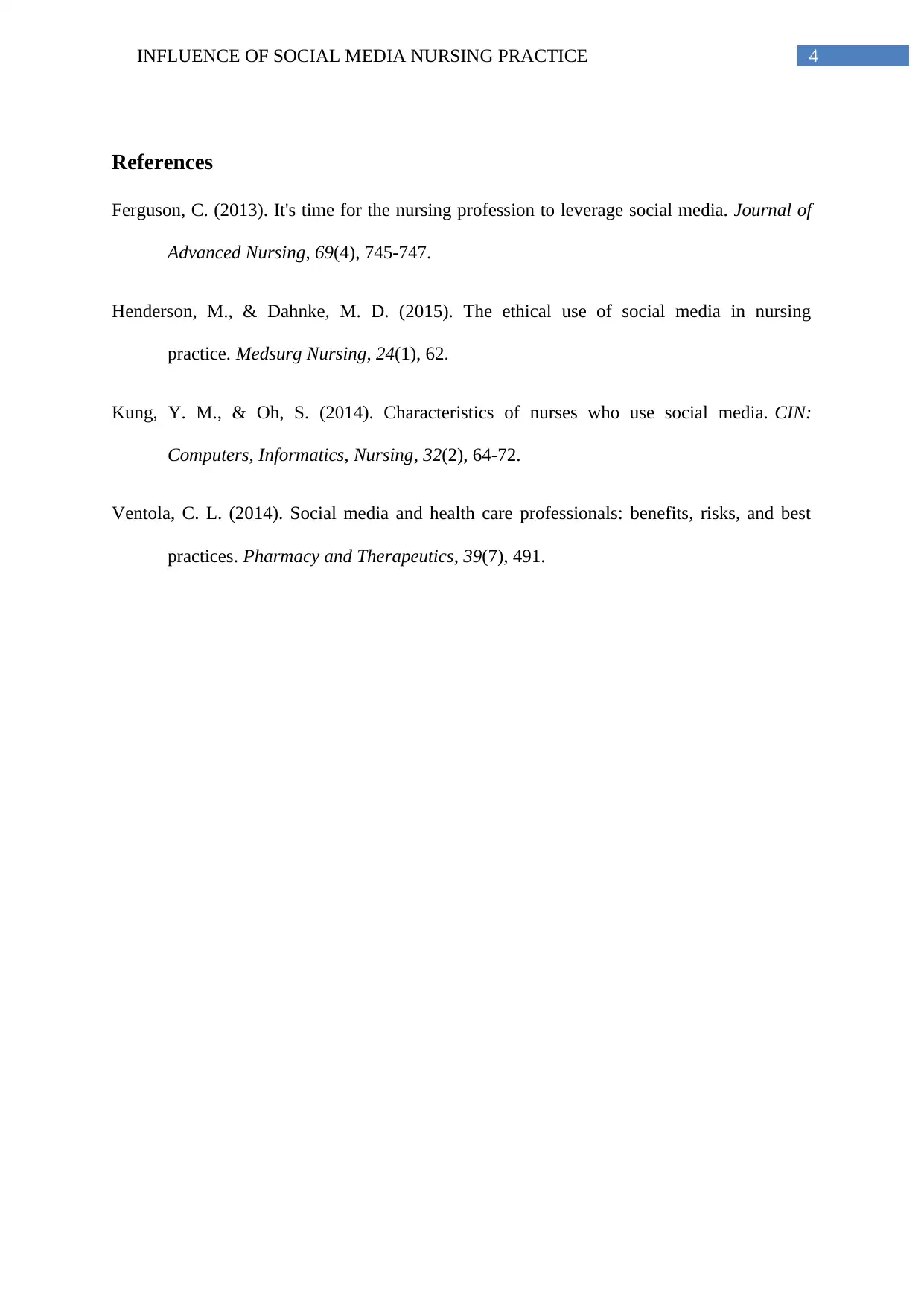






![[object Object]](/_next/static/media/star-bottom.7253800d.svg)